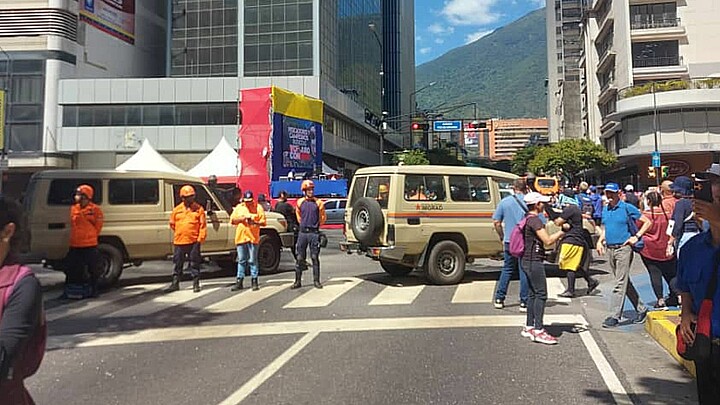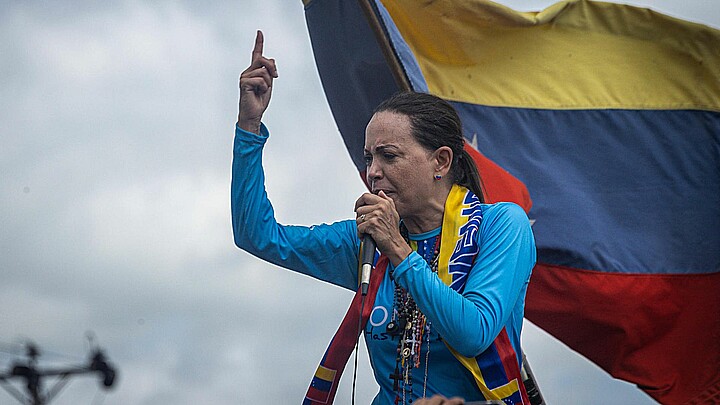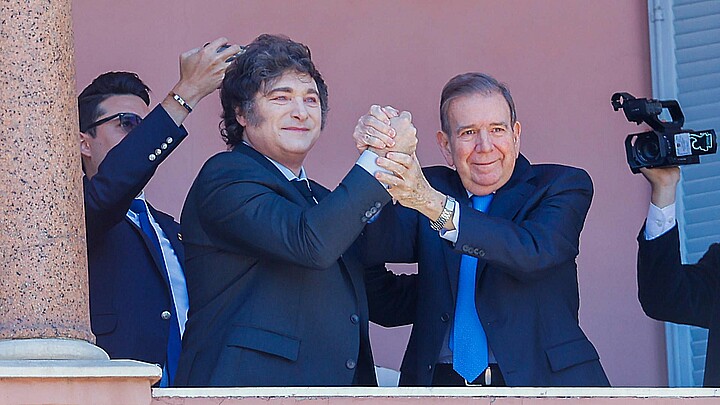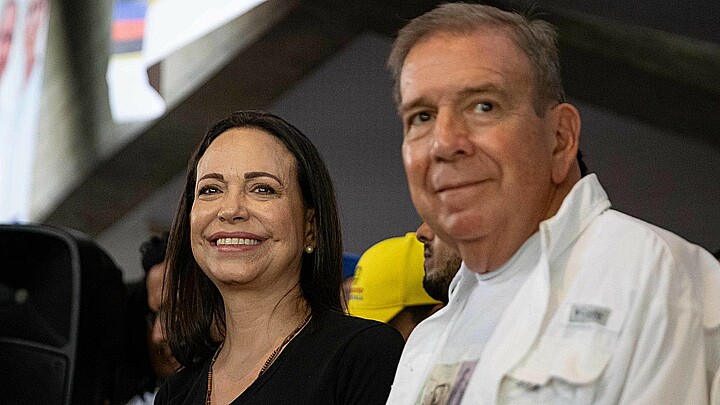Politics
U.S. reverses relief of sanctions against Venezuela due to Maduro's election non-compliance
Venezuelan dictator Nicolás Maduro is accused of failing to fulfill his electoral commitments with the disqualification of the opposition candidate María Corina Machado

April 18, 2024 6:42am
Updated: April 18, 2024 9:17am
The United States announced this Wednesday is partially reversing the relief of sanctions on Venezuelan oil and gas, accusing the president of Venezuela, Nicolás Maduro, of failing to fulfill his electoral commitments with the disqualification of the opposition candidate María Corina Machado.
The Treasury Department decided not to renew the relief that expires midnight and set a deadline of May 31 for foreign companies to halt all oil and gas production and export operations they have had over the past six months.
From now on, companies that want to do business with the state oil company Petróleos de Venezuela (PDVSA) must request individual authorizations from the U.S. Treasury, which will be evaluated on a case-by-case basis.
Last October, the Biden administration issued General License 44, which lifted sanctions for six months on Venezuelan oil and gas, an incentive for Maduro to comply with the Barbados Agreements.
Those agreements obligated the communist regime to open elections and candidacy to the the anti-Chavista opposition and hold competitive and democratic elections.
But María Corina Machado, the opposition's favorite candidate, has been disqualified from running in the elections on July 28 and the electoral authorities did not allow her replacement, Corina Yoris, to register.
The United States has also reported a series of arrests of politicians and activists in Venezuela.
The end of General License 44 means that all activities that were being carried out under this permit must be closed in the next 45 days and that new operations are no longer permitted.
Instead, the U.S. Treasury will issue License 44A, which states that companies have to apply for specific permits to do business in Venezuela's oil and gas sector, which will be evaluated on a case-by-case basis.
Washington may deny these permits when it considers that they violate the national security and foreign policy interests of the United States.
During the six months of sanctions relief, Caracas has expanded agreements with foreign companies and oil production increased in the country by 18% in the first quarter of the year.
The reimposition of sanctions on Venezuela had generated debate within the Biden administration due to the possibility that they would cause an increase in migration to the United States and an increase in gasoline prices.
According to U.S. sources, Maduro has complied with some aspects of the Barbados Agreements, such as updating the voter registry or authorizing international electoral observation missions.
But for the United States, the disqualification of Machado and the blockade of Yoris represent a flagrant breach of the agreements for competitive elections.
Despite the reimposition of sanctions, the same sources assure that the United States is not throwing in the towel and will continue in talks with representatives of Maduro, the anti-Chavista opposition and other governments in the region to save the Barbados Agreements.










